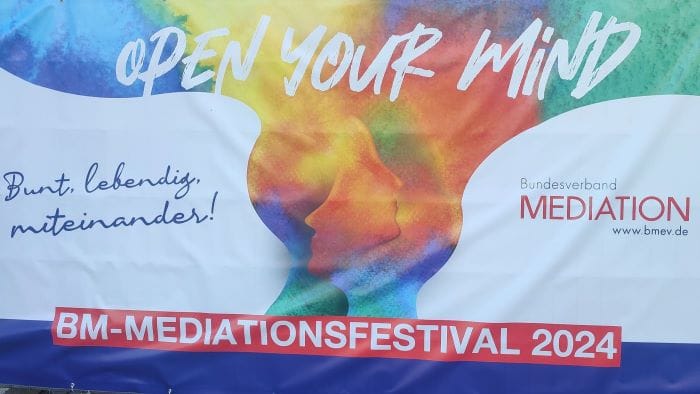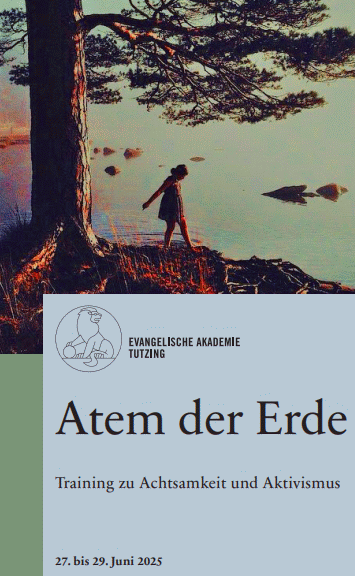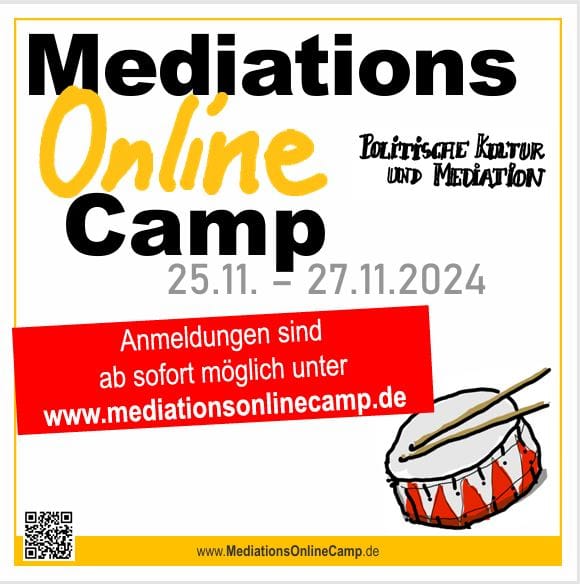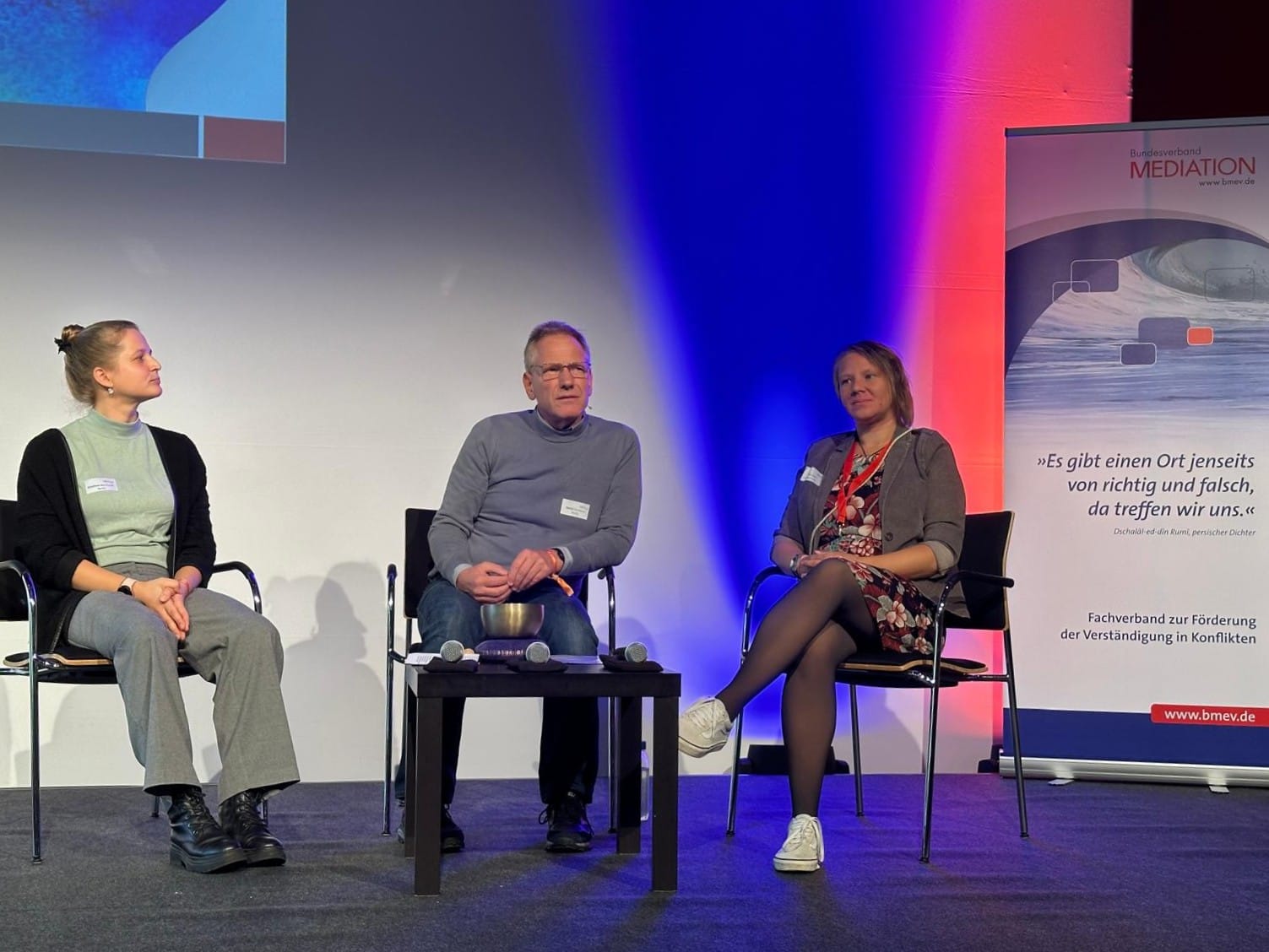I’m on a train journey to the German city of Hanau this evening to attend the biennial conference of the Bundesverband Mediation (BM), Europe’s largest association of mediators and conflict professionals. I’m excited because this year the BM has chosen Mindfulness as the theme for its conference. For me the relevance of mindfulness practice to my work as a mediator has been evident from the start (after years of meditation practice, using mindfulness to self-regulate and to maintain an empathic connection to clients has become an important element in my approach to conflict management). But it is wonderful to see this idea reach the mainstream of the mediation profession as well.
That conflict resolution could be accomplished in the context of contemplative or mindfulness practice, I discovered first-hand during my two-year stay in Thich Nhat Hanh’s Plum Village monastery. Buddhist monastic life is, of course, not free from conflict and the team of resident-farmers, which I co-lead, and which had been assembled to develop and operate a small organic vegetable farm for the community, had its share of disagreements as well.
I still remember when we turned to the monks for assistance in resolving a particularly thorny conflict. We sat in a circle, on our cushions in a small zendo (meditation hall): the monastic “mediators,” and the lay members of the farm team. Using all our mindfulness training and the skillful support from our “mediators,” we managed to settle our dispute mainly by listening deeply, speaking from the heart, taking each other’s perspective, and even “watering each other’s flowers” – to use an expression often heard in Plum Village that refers to sharing appreciation for the ways another person has made our life easier or more beautiful. All this took place under guidance of the monastics who helped us by quietly holding the energy of mindfulness, by occasionally slowing down our conversation with the sound of a bell, and by reminding us of Buddhist principles like generosity and non-attachment to views. And just like in “normal” mediations, the monks were not always successful in helping us chart a common path forward — I believe one time a team member decided his needs were best met by leaving the farm team. But the monks always supported us in clarifying our issues respectfully and peacefully.
As a former lay resident of a Buddhist monastery, I am now wondering what the organizers and attendees of this mediation conference may be associating with the term “mindfulness” – a word that is experiencing pretty inflationary usage. I’m wondering how mindfulness practice is finding its way into the world of working conflict professionals, people who may have no interest whatsoever in Buddhism or in the practices we used to solve conflicts back in Plum Village. I’m all the more curious about this because definitions of mindfulness are notoriously difficult to agree on, ranging from meditation to attention, concentration, awareness, consciousness, empathy, compassion, self-care, and more.
I should note, that a several colleagues and I have recently come together to start a new Working Group within the BM titled Mindfulness & Mediation. The group has been in existence for about a year and it is presenting some of the results of its work during a workshop at this weekend’s conference. In addition, we will be given time during the opening plenary to present the Working Group and conduct a guided meditation. For this opportunity we are very grateful.
So, with a couple of hours left on my journey to Hanau, I remain excited and curious about the inroads mindfulness is making in the world of mediation and conflict management. I will hopefully find time to write a bit more about my observations from the conference in a later post. At that time I also hope to share details about an upcoming 2-day seminar on mindfulness and conflict management, which I will be offering for the first time in February 2025, together with my esteemed colleague Madleen Bernhardt.




